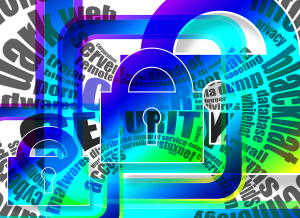Browsing Securely: How to Guard Your Privacy Online

The internet has revolutionized how we live, work, and communicate. However, it has also created significant risks to personal privacy. As we spend more of our lives online, we leave an expansive trail of personal data vulnerable to tracking and exploitation. Hackers, companies, and even government surveillance programs aim to monitor web activity and collect information without consent. This raises serious concerns about how to browse the web securely and retain privacy in the digital age. Thankfully, knowledge and tools exist to help guard your sensitive information online. This essay will examine browsing risks, strategies and software to enhance safety, and the importance of taking an active role in protecting your data. A few adjustments to your online habits can go a long way toward securing peace of mind.
Understanding Online Privacy Risks
Before exploring solutions, it helps to understand exactly what threatens your privacy while browsing. Some main risks include:
• Tracking cookies from websites, ads, and analytics services that log your activity across sites to build profiles.
• IP address logging that identifies and pinpoints your location and device.
• DNS hijacking that allows redirecting you to phishing sites to steal personal information.
• Shoulder surfing on unsecure public networks where strangers can spy on your activity.
• Unencrypted data that allows your activity and information to be intercepted and read.
• Spyware and malware that record your keystrokes, sites visited, and even access your computer’s camera and microphone.
• Data breaches that expose account information and passwords stored on websites to hackers.
• Location tracking if you allow sites access to your device’s GPS coordinates.
Without sufficient precautions, all these avenues exist for others to gather an alarmingly comprehensive view of your personal life. However, tools and techniques are available to effectively minimize each of these risks.
General Browsing Privacy Tips
Let’s start with some fundamental habits that enhance general browsing security:
• Use encrypted HTTPS connections and avoid HTTP when possible, ensuring sites have valid SSL certificates. This protects information transmitted from interception.
• Be extremely cautious on public Wi-Fi and avoid accessing anything confidential. Use a VPN to encrypt the connection.
• Check site security and opt out of unnecessary tracking and cookies to minimize what data is gathered.
• Use anonymous private or incognito browsing modes to prevent local data retention.
• Invest in a paid reputable VPN service to hide your IP address and encrypt traffic. Free VPNs often log activity.
• Create strong unique passwords for each account and enable multi-factor authentication when available.
• Avoid online activity that could allow shoulder surfing of sensitive information if your screen is visible.
• Install comprehensive antivirus software to detect any spyware or keyloggers that made it onto your device.
Following these common-sense practices significantly reduces your browsing exposure and risk profile from generic online threats. However, more advanced tools and configurations can further harden your privacy.
Leveraging a VPN for Enhanced Security
One of the best investments you can make to enhance online privacy is a virtual private network (VPN). This encrypts all traffic between your device and the VPN server, hiding your IP address and preventing network eavesdropping. It essentially creates a private tunnel through the public internet for your data. Choose a no-log policy provider located outside intrusive jurisdictions. Connect automatically whenever browsing for full protection. Some top advanced VPN features that protect privacy include:
• Onion routing which encrypts and re-routes traffic through multiple servers to completely mask originating location.
• Integrated firewalls that prevent network attacks and block malicious sites and trackers.
• Split-tunneling to only route specific apps through the encrypted tunnel to optimize performance.
• Multi-hop connections routed through multiple VPN servers in different countries for enhanced privacy and redundancy.
• Scrambled OpenVPN encryption protocols make interception and decryption virtually impossible.
Investing in a premium VPN like ExpressVPN, NordVPN, or TunnelBear is wise for optimal privacy, speed, and reliability when browsing.
Strengthening Browser Settings
Configuring your browser’s settings also helps keep activity private:
• Utilize private/incognito modes to disable history, cache, cookie storage, and site data retention.
• Clear history, caches, cookies, passwords and other locally stored data regularly.
• Disable location sharing, microphone and camera access that sites don’t need. Review permissions regularly.
• Install browser extensions like Privacy Badger, uBlockOrigin, and Ghostery to block hidden trackers.
• Disable Flash, Java, and limit third-party scripts to protect against vulnerabilities.
• Review installed extensions and remove any that seem unnecessary or suspicious.
Tweaking these configurations denies access to information browsers use to track and identify you. However, supplemental software can further anonymize activity.
Leveraging Anonymity Software
For the most stringent online anonymity, specialized software routes your traffic in ways extremely difficult to trace back to you:
• The Tor browser screens all traffic through randomized proxy servers run by volunteers worldwide. This obscures originating location and activity from surveillance or monitoring.
• Tails OS is a Linux distro focused on privacy that can boot and run offline from a USB drive and leave no trace on the host computer. All connections route through Tor.
• Virtual machines like VirtualBox allow you to run one OS inside another and route browsing through the virtual environment for added separation.
• Proxy servers like Privoxy forward your traffic through intermediary machines to disguise your identity and IP address from sites.
Each of these makes tracing browsing back to you orders of magnitude more difficult at the cost of some speed. For activists, whistleblowers, and the privacy obsessed, they provide additional layers of protection.
The Role of Personal Responsibility
While the right tools can securely enable enjoying the benefits of the internet, personal discretion in how you use the technology is equally important. No single solution can completely guarantee anonymity. You should:
• Avoid directly identifying yourself through usernames, profiles, demographics, and other information correlatable to you.
• Think carefully before posting images, videos or details online that you would not want traced back to you.
• Evaluate whether the convenience offered by an app or service is worth the privacy trade-off. Disable permissions not essential to function.
• Periodically review all online accounts and delete or anonymize unneeded ones containing personal information.
• Consider if accessing controversial or illegal content carries risks worth the minimal effort to obscure your IP address and traffic.
• Leverage encryption and other precautions for sensitive communication like messaging and VOIP calls.
Ultimately, technology alone cannot protect against lapses in judgment. Combining prudent tools with careful sharing of personal information is key to retaining privacy online.
Conclusion
As our digital and physical lives converge, your personal information requires vigilant safeguarding online. While completely eliminating exposure risks is nearly impossible, following the strategies outlined in this guide significantly reduce threats to privacy through everyday browsing. Take reasonable steps to secure data, browse anonymously, and maintain online discretion. With a privacy-centric mindset and the right tools, you can confidently enjoy the internet’s benefits without sacrificing personal security. Protect your identity through technology, prudence and awareness.







